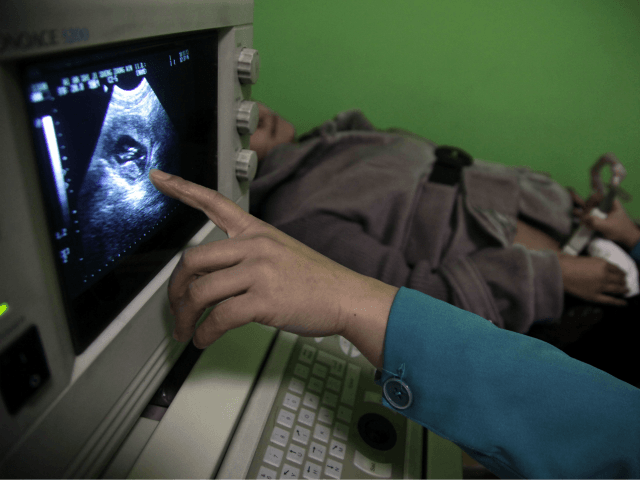The Biden administration cannot force emergency room doctors in Texas to perform abortions, a federal appeals court ruled on Tuesday.
After the Supreme Court overturned Roe v. Wade, which had invented a constitutional right to abortion, President Joe Biden’s Department of Health and Human Services (HHS) issued guidance claiming that the Emergency Medical Treatment and Labor Act of 1986 (EMTALA) requires doctors to perform abortions on patients in emergency rooms when it is “the stabilizing treatment necessary” to help in a medical emergency. Under the guidance, hospitals not in compliance could lose funding and the ability to participate in Medicaid.
The State of Texas, along with two medical associations, subsequently sued the HHS, arguing that the guidance exceeds the agency’s authority and is contrary to state law. A three-judge panel for the U.S. Court of Appeals for the Fifth Circuit just issued an order reaffirming a lower court’s decision to block the guidance in Texas, holding that the EMTALA does not require emergency room physicians to perform abortion. Instead, the court held that the law’s original intent is to prevent hospitals from refusing to treat patients who are unable to pay for emergency services — requiring hospitals to stabilize both pregnant women and unborn children in emergencies. The panel was comprised of Judges Kurt Engelhardt, Cory Wilson, and Leslie Southwick.
“EMTALA does not mandate any specific type of medical treatment, let alone abortion,” Engelhardt wrote for the panel. “We agree with the district court that EMTALA does not provide an unqualified right for the pregnant mother to abort her child especially when EMTALA imposes equal stabilization obligations.”
“The question before the court is whether EMTALA, according to HHS’s Guidance, mandates physicians to provide abortions when that is the necessary stabilizing treatment for an emergency medical condition. It does not. We therefore decline to expand the scope of EMTALA,” he wrote.

File/More than one thousand showed up to protest the Florida Legislature’s plan to limit abortion rights with a plan that mirrors the abortion restrictions passed in Texas this year during the March for Abortion Access in Orlando, Fla., Saturday, Oct. 2, 2021. (Willie J. Allen Jr./Orlando Sentinel)
The court noted that HHS failed to provide a notice and comment period for the guidance and also pointed out that “Texas law does not stand in the way of providing stabilizing treatment for a pregnant woman or the unborn child” because the state’s Human Life Protection Act (HLPA).
“The Texas HLPA provides for abortion care where there is a life-threatening condition that places the female at risk of death or substantial impairment of a major bodily function and the physician provides the best opportunity for the unborn child to survive unless that would create a greater risk for the pregnant female’s death or a serious risk of substantial impairment of a major bodily function of the pregnant female,” the order reads.
The original complaint was filed by Alliance Defending Freedom (ADF) on behalf of Texas, the American Association of Pro-Life Obstetricians & Gynecologists, and the Christian Medical & Dental Associations in July of 2022. It argues that the EMTALA Guidance is “far broader than the life of the mother exception” in state and federal law.
“[B]ut instead [it] include[s] undefined ‘health’ conditions of a pregnant woman (which, under Roe, included emotional and social health), situations such as ‘incomplete medical abortions,’ and undefined and open-ended situations that do not presently threaten the life of the mother but are ‘likely . . . to become emergent,”‘ the complaint reads.
The complaint continues.
The EMTALA Guidance [also] attempts to force hospitals and physicians to complete medical abortions (otherwise known as chemical abortions) that began elsewhere, even illegally.
The Abortion Mandate, by threatening to punish hospitals and physicians in failing their duty to stabilize patients, inherently threatens to second-guess the medical judgment or moral or religious beliefs of a hospital or physician who concludes that an abortion is not an appropriate response in a particular situation, and to subject the hospital or physician to penalties after the fact for allegedly failing in their stabilization duty based on the new abortion standard of care set forth in the EMTALA Guidance.”
The ADF called the Fifth Circuit’s Tuesday decision a “pivotal victory for women, children, and healthcare professionals” in a press release.
“Hospitals—especially emergency rooms—are tasked with preserving life. The Fifth Circuit correctly ruled that the federal government has no business transforming them into abortion clinics,” said ADF Senior Vice President of Strategic Initiatives Ryan Bangert, who argued before the court.
“Doctors shouldn’t be forced to break the Hippocratic Oath, and they shouldn’t have to choose between violating their deeply held beliefs or facing stiff financial penalties and being barred from the Medicare program. Emergency room physicians can, and do, treat life-threatening conditions such as ectopic pregnancies,” Bangert added. “But elective abortion is not life-saving care—it ends the life of the unborn child—and the government has no authority to force doctors to perform these dangerous procedures. We are pleased that the courts are allowing emergency rooms to fulfill their primary function—saving lives.”
Two similar cases out of Idaho surrounding the HHS guidance and state abortion laws are pending before the U.S. Supreme Court.
The case is Texas v. Becerra, No. 23-10246 in the U.S. Court of Appeals for the Fifth Circuit.

COMMENTS
Please let us know if you're having issues with commenting.